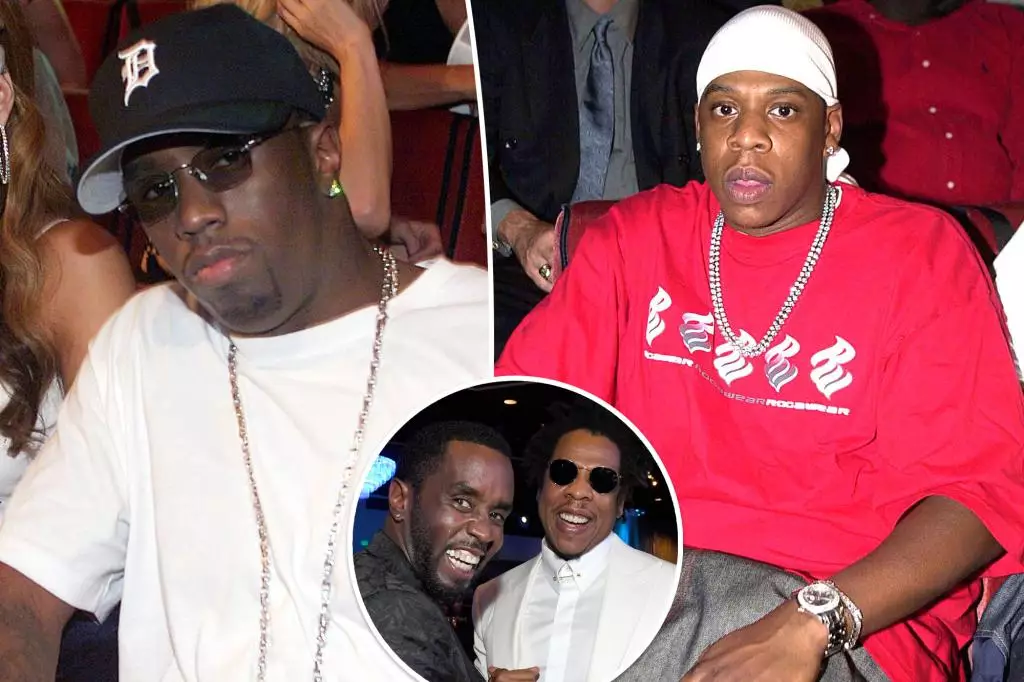In the sphere of celebrity culture, where fame often blurs the lines of accountability, shocking allegations can surface that challenge perceptions and value systems. One such complex case involves renowned hip-hop artists Jay-Z and Sean “Diddy” Combs, who have been implicated in an alarming civil lawsuit regarding an incident alleged to have occurred at an MTV Video Music Awards afterparty in 2000. This intense situation raises questions not only about the judicial process but also the intricate web of public opinion, morality, and the harsh realities faced by victims.
The allegations were articulated by an anonymous individual, referred to as Jane Doe, who claims that at the tender age of 13, she was raped by both Jay-Z and Diddy during a party in New York City. According to court documents, the recently re-filed lawsuit, represented by Texas attorney Tony Buzbee, intensifies the narrative that had previously implicated only Combs in this grave accusation. The details presented by the accuser are harrowing: she reportedly consumed a drink that left her feeling disoriented before being assaulted in a locked bedroom. Such allegations are not only disturbing but evoke a visceral reaction from the public, compelling them to consider the broader implications of sexual violence and exploitation, particularly against minors.
In a robust defense against the allegations, Jay-Z—whose real name is Shawn Carter—has publicly denied the claims, labeling them as “heinous” and suggesting that they stem from a deliberate attempt at blackmail. He accused Buzbee, the attorney, of seeking financial gain through sensationalized accusations, arguing that the nature of the claims would compel him to settle in fear of public backlash. Jay-Z’s statement was filled with emotion and conviction, revealing a deep concern for his family, particularly how the allegations could affect his children. The impact of public scrutiny on his family life further emphasizes the human cost of such high-profile accusations.
In his response, Jay-Z implored that a civil suit was not the appropriate channel for addressing grievances of this magnitude, urging the accuser to pursue a criminal complaint if they truly sought justice. This raises a significant question: should the legal framework of our society differentiate between civil and criminal accusations, especially in cases involving minors? Jay-Z’s statement accentuates the complex intersection of fame and ethics, stressing a moral responsibility to protect innocent lives and the importance of integrity within the justice system.
On the other hand, Diddy’s legal team has taken a firm stance, asserting that the allegations are nothing more than publicity stunts designed to extort money from high-profile individuals. They maintain that Diddy has confidence in the judicial system and believes that truth will prevail in court, disputing any claims of wrongdoing. Interestingly, Diddy’s arrest on separate charges including sex trafficking and racketeering is pivotal to this case. While he has denied these recent criminal accusations, the two cases highlight the precarious nature of celebrity culture where allegations can have far-reaching implications.
This entire situation serves as a stark reminder of the ongoing struggles surrounding sexual violence and the often flawed frameworks in place to support its victims. The intricate dance between truth, media portrayal, and public perception can create an atmosphere of victimization that extends beyond the individuals involved. In this case, the emotional toll of such allegations on the personal lives of the accused, as well as the accuser, is undeniable. Jay-Z’s candid acknowledgment of mourning childhood innocence due to this public spectacle transcends the headlines, prompting a broader conversation about societal values and the treatment of women and girls in our communities.
As this case unfolds, it reiterates the essential need for a robust and sensitive approach to handling accusations of sexual misconduct. The interplay of celebrity status, power dynamics, and legal proceedings demands careful scrutiny and responsible engagement from all involved. For Jay-Z, Diddy, and Jane Doe, this situation will continue to evoke emotions, raise questions, and demand accountability as they navigate the murky waters of public scrutiny and personal justice. The case ultimately transcends celebrity culture, manifesting a broader societal discourse on the urgent need to address issues of sexual violence and the protection of minors, fostering a culture of respect and integrity.


Leave a Reply